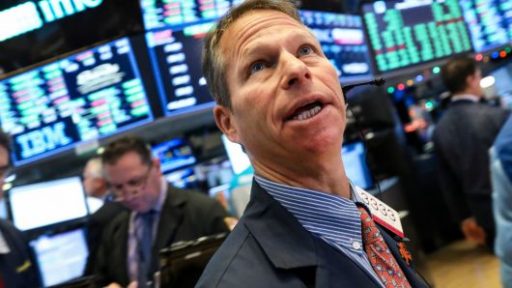- Home
- >
- Stocks Daily Forecasts
- >
- Why 2019 could be very good for stocks, after the worst year in a decade

Why 2019 could be very good for stocks, after the worst year in a decade

There's a good chance that what ailed the market in 2018 could reverse sometime in 2019, providing strong tailwinds for stocks, some strategists said.
After the worst December since 1931 and the worst year since the financial crisis, stocks enter 2019 tentatively but still susceptible to the volatility that resulted in historic intraday swings in late December. The S&P 500, trading at about 2,470, is down 6.6 percent for the year, and down 9.6 percent in December alone.
In the final quarter of 2018, the market fell on concerns that economic growth and profit growth are slowing down, and Fed rate hikes and trade wars would only accelerate the deceleration. But most Wall Street strategists in a survey maintain a rosy view for the bull market, and see it extending its run for another year, for an average year-end target of 3,000 — a 20 percent gain.
"Based on fundamentals, I don't think the pullback we had in this market was ever justified. Markets will do what they'll do. I think you have significant upside here. Therefore, we would think that the bottom has been put in this market," said Jonathan Golub, chief U.S. equities strategist at Credit Suisse. One positive is that the forward price to earnings ratio has fallen below 15 percent from 18.4 at the start of 2018. Golub's S&P 500 target is 2,925 for 2019.
But while recent up days have been encouraging, some strategists say the market could stay volatile and swing in both directions as it works to form a bottom around the lows of last week.
Ed Keon, chief investment strategist and fund manager at QMA, is clearly feeling better about the market but says it continues to have big risks, and he expects earnings growth to be flat in 2019, compared to Wall Street expectations of about 7 to 8 percent growth.
Keon said December was one of his most actively traded months, after he decided Dec. 3 to sell some stocks following President Donald Trump's meeting with China President Xi. He then proceeded to sell on every rally until last week, when he began to buy much stocks at a much cheaper valuation.
Source: CNBC
 Trader Georgi Bozhidarov
Trader Georgi Bozhidarov Read more:
If you think, we can improve that section,
please comment. Your oppinion is imortant for us.











